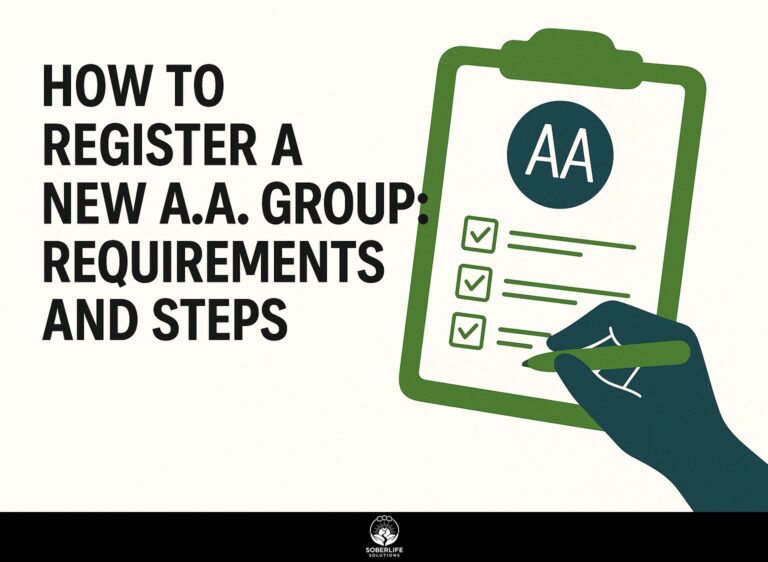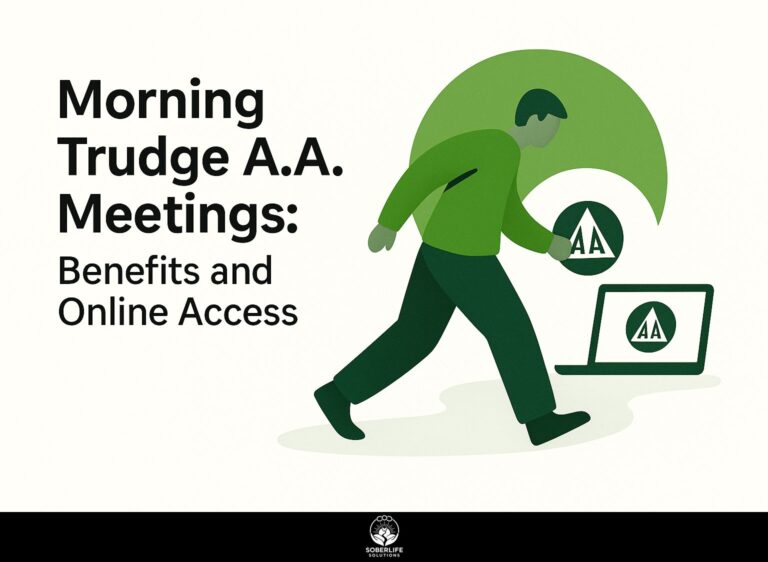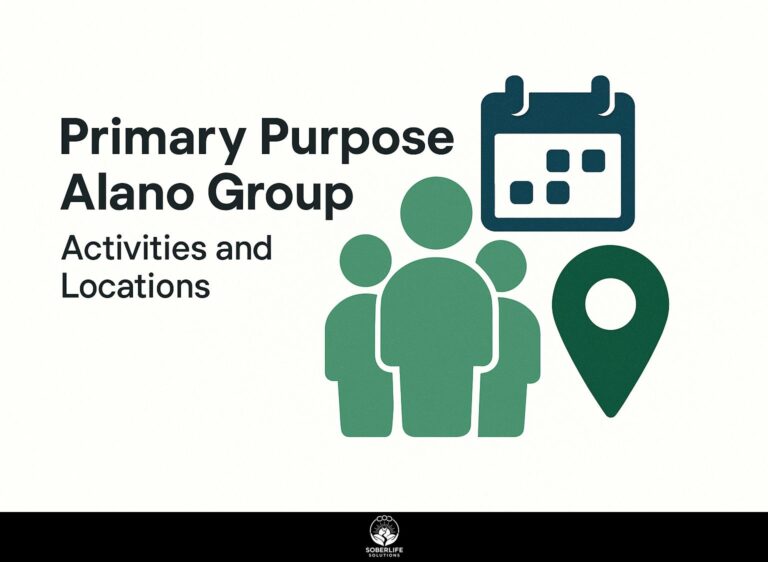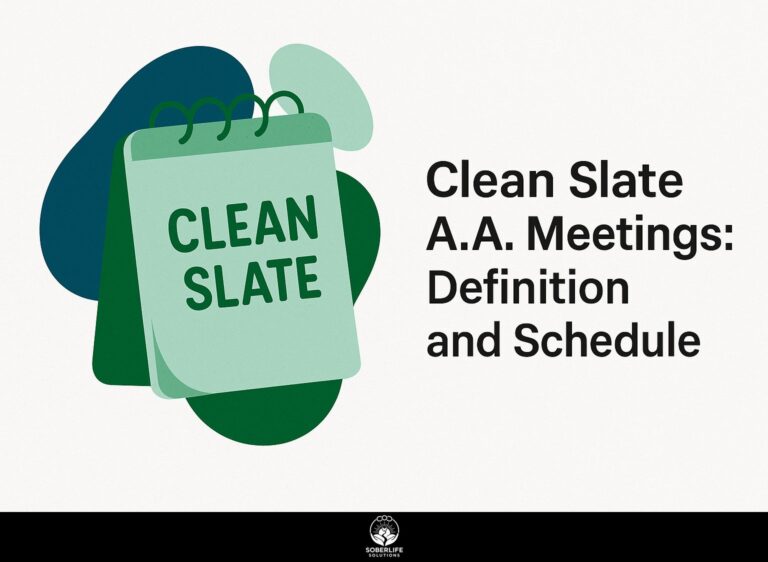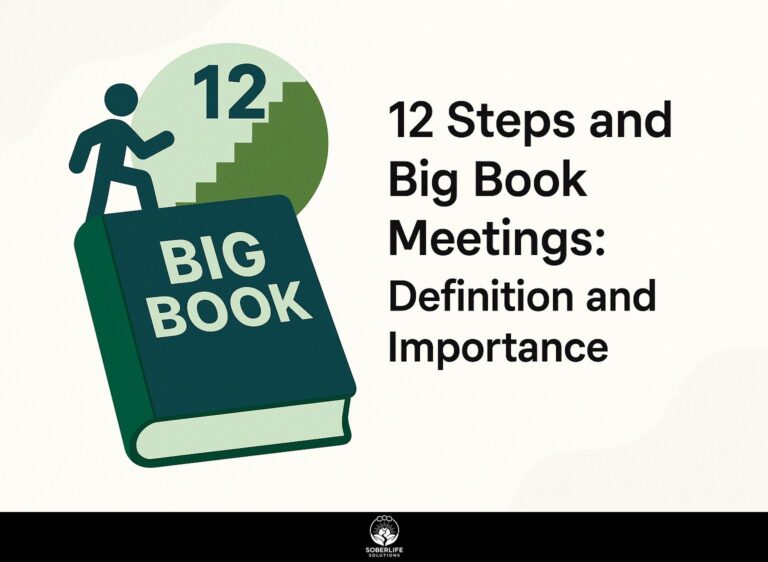How to Attend A.A. Meetings with Family Members
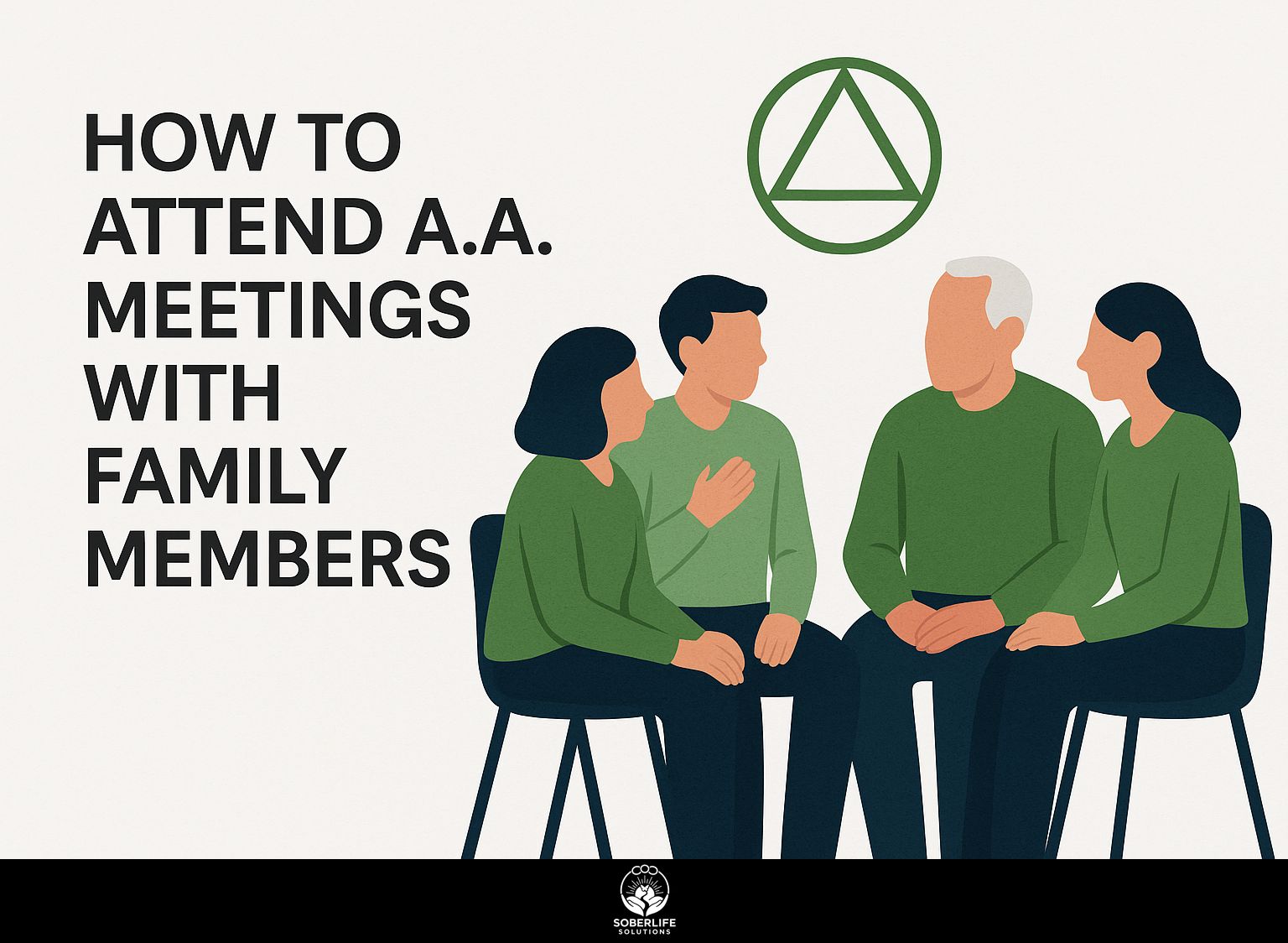
Going to A.A. meetings with family members can be a life-changing part of recovering from alcohol addiction. Alcoholics Anonymous offers open meetings that provide help to individuals and their families through a supportive community and the informative Big Book. This guide provides you with key advice for attending A.A. meetings together, making sure everyone feels at ease and cared for. Learn how spending time together can bring people closer and improve relationships during recovery.
Key Takeaways:
What is A.A.?
Alcoholics Anonymous (A.A.) is an international network of people who work together to overcome alcoholism by sharing their experiences and helping each other.
Founded in 1935, A.A. focuses on the Twelve Steps, a set of steps that encourage personal responsibility and spiritual development. For further insight, an overview on Wikipedia delves into the organization’s history and impact.
Each step promotes self-examination and encourages members to share their experiences in a supportive environment.
Step Four involves evaluating your own behavior and character, while Step Nine involves apologizing for past mistakes. Curious about why anonymity is crucial in A.A.? Understanding its significance can enhance the support and safety of its members.
A.A.’s books, such as ‘The Big Book,’ and the routine of regular meetings are important for members’ recovery, offering direction and a feeling of belonging.
Purpose of A.A. Meetings
The purpose of A.A. meetings is to provide a supportive environment where members can discuss their struggles and successes, reinforcing their commitment to sobriety.
During these meetings, participants talk about their own experiences with alcohol dependence, which helps others relate and feel empathy.
Every session typically allows members to share their feelings, challenges, and achievements concerning their recovery. This shared openness reduces loneliness and promotes responsibility.
Tools such as sharing circles or led conversations can increase participation. The shared experience of A.A. meetings is important for staying sober over time and forming strong support groups with others. For an in-depth look at the different types and benefits of A.A. meetings, consider our deep dive on A.A. Meetings: Types, Benefits, and Attendance Tips.
Understanding Family Roles in Recovery
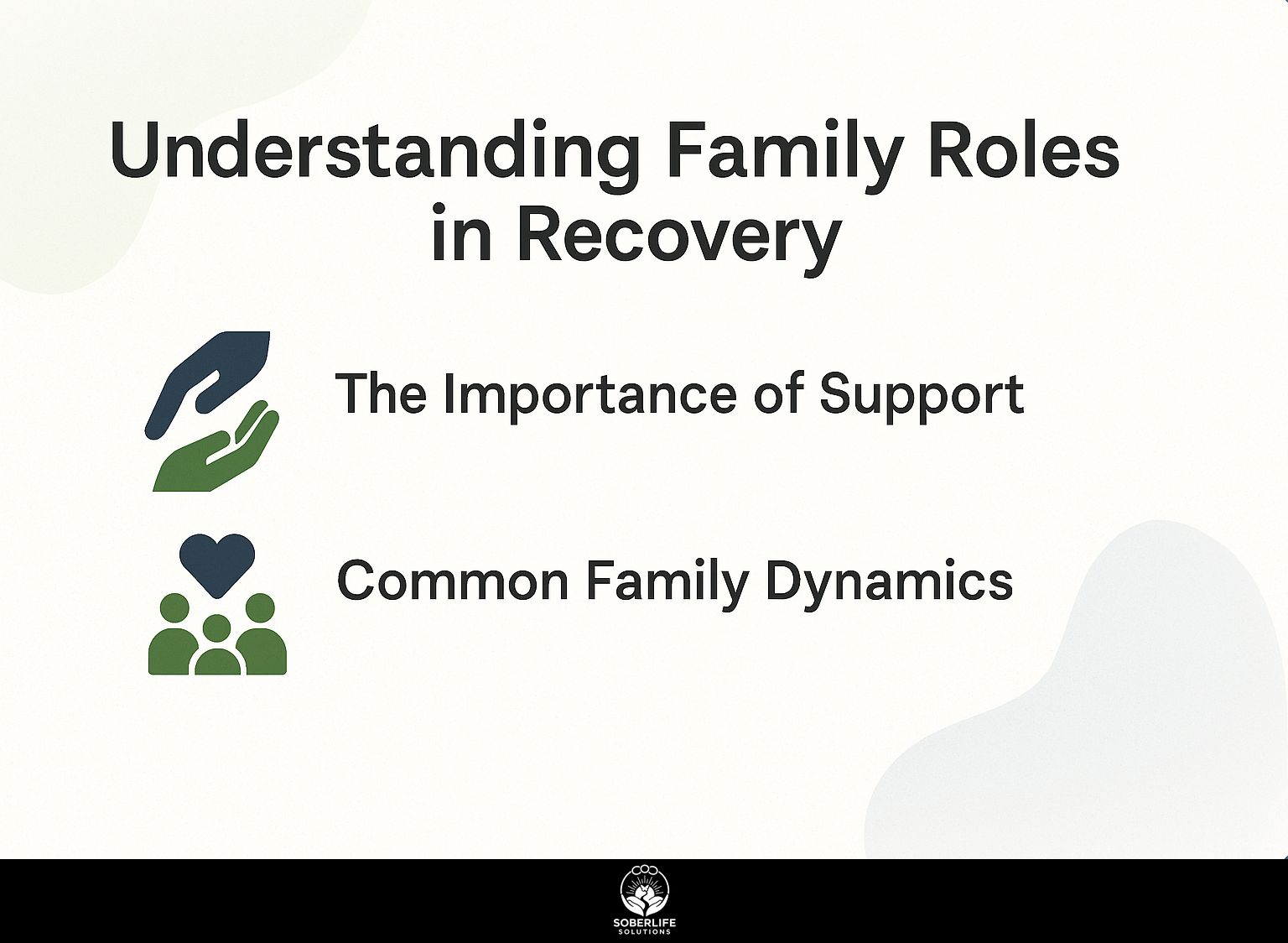
Family participation is important in the recovery process, impacting both the person dealing with alcoholism and their family members. This collective effort can be further enhanced by learning effective recovery strategies. For example, participating in recovery pow wows provides a supportive community that facilitates healing and understanding.
The Importance of Support
Help from family can greatly improve a person’s recovery process, creating a feeling of connection and responsibility.
Family involvement can manifest in various ways during A.A. meetings. For example, attending meetings together allows family members to understand the recovery process and offer emotional support.
Some A.A. groups encourage family members to participate in sessions designed specifically for them, where they learn coping strategies and how to support their loved ones effectively. Studies from MDPI show that individuals with family support have a 40% higher success rate in maintaining sobriety, providing essential statistical context to the benefits of familial involvement.
Encouraging open communication and setting family goals can further solidify this support system.
Common Family Dynamics
Knowing typical family actions helps manage the challenges of recovery, making sure communication and support are effective.
For instance, enabling behaviors often arise when family members unintentionally relieve the individual of responsibilities, which can hinder recovery. A great example is a parent who regularly prepares meals for a recovering addict, thereby preventing them from learning to nourish themselves (a scenario detailed by Psych Central).
On the other hand, codependency may appear when one partner tries to control all parts of the other person’s life, limiting their freedom. Knowing these situations is important; discussing boundaries and duties openly can improve interactions that support recovery efforts. As mentioned, this aligns with strategies explored in family therapy, which is crucial for effective addiction recovery. For further insights, refer to our guide on Family Therapy: Process and Importance in Alcoholism Recovery.
Preparing for the Meeting
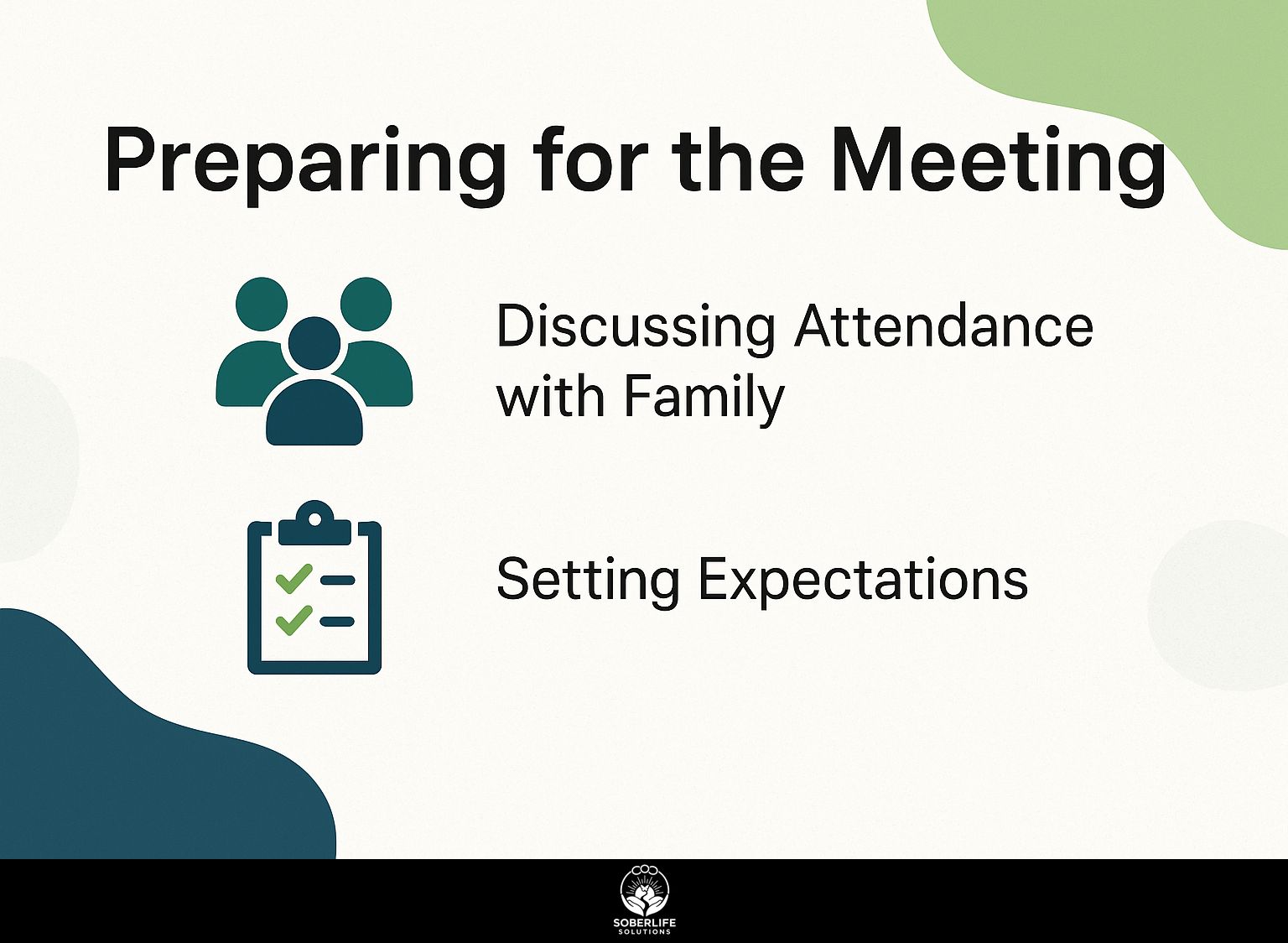
Getting ready before joining an A.A. meeting can make the experience much better for the person attending and their family.
Discussing Attendance with Family
Having an open discussion about attending A.A. meetings can set a constructive tone, allowing family members to express their feelings and concerns.
Start by encouraging an atmosphere of openness. Try asking specific questions like, “Do you want to go to A.A. meetings together?” or “What do you think about getting some help?”
It’s important to listen actively to their concerns and validate their feelings. Talk about the common goal of creating a helpful setting, highlighting that A.A. is a beneficial move towards healing.
Using tools like shared goals or group tasks can make the discussion better and help everyone feel part of it.
Setting Expectations
Setting clear expectations before attending a meeting can help align family members on what to anticipate and how to support each other.
To get ready, assign someone to take notes to record important details and someone to watch the clock to keep discussions focused.
Encourage open dialogue by having each member express their thoughts and feelings at the beginning, creating a space for emotional support. For example, if a family member is having a hard time with a certain problem, others can give advice or share their own similar experiences.
Thinking ahead about possible situations, like disagreements, helps in finding solutions to conflicts early on. This setup provides a friendly place where everyone can share their ideas.
What to Expect at A.A. Meetings
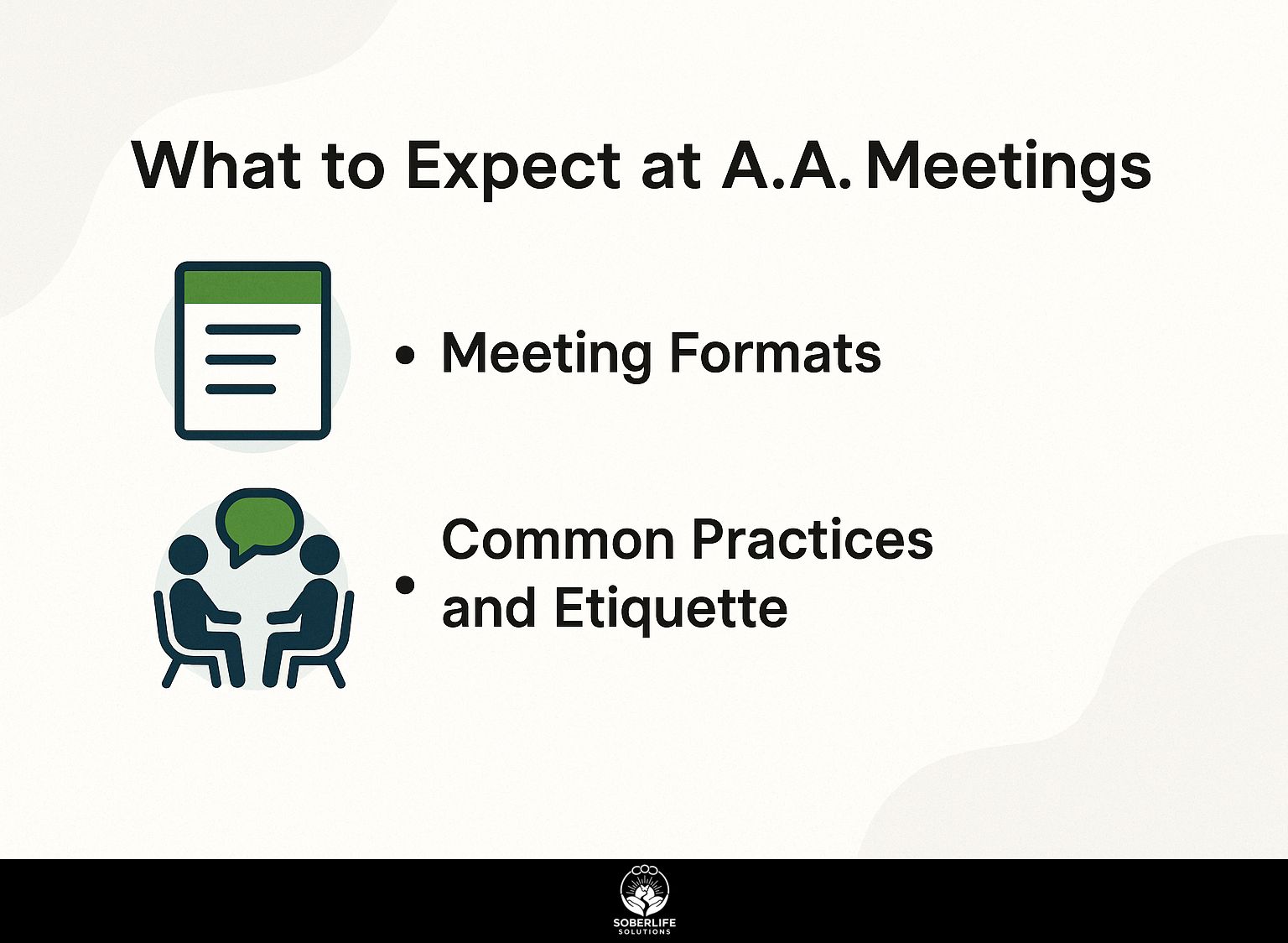
Learning about A.A. meetings and how to behave at them helps families have a meaningful and respectful time.
Meeting Formats
A.A. meetings typically include discussion meetings and speaker meetings, each serving a unique purpose in recovery.
Discussion meetings are interactive sessions where people exchange their experiences and ideas in a helpful setting. This format encourages open dialogue, allowing members to connect and learn from each other.
In contrast, speaker meetings feature one or more individuals sharing their personal stories, often aimed at providing inspiration and hope. While discussion meetings encourage group involvement, speaker meetings provide more detailed views into individual recovery experiences.
Both formats are important; discussions build relationships between people, while speakers can inspire and offer fresh views on the path to recovery.
Common Practices and Etiquette
Being familiar with typical customs and manners in A.A. meetings helps make the atmosphere welcoming and polite for all participants.
To create a good experience for everyone, attendees must follow these important rules.
Dos:
- Do respect confidentiality by avoiding discussions about others outside the meeting.
- Pay close attention when others talk, showing interest and comprehension.
- It’s important to respect different opinions; this builds openness and trust.
Don’ts:
- Don’t interrupt speakers or dominate discussions, as this can discourage others from sharing.
- Don’t guess about what others have been through.
- Refrain from giving unsolicited advice.
By adhering to these guidelines, participants create a supportive environment conducive to recovery.
Participating in the Meeting
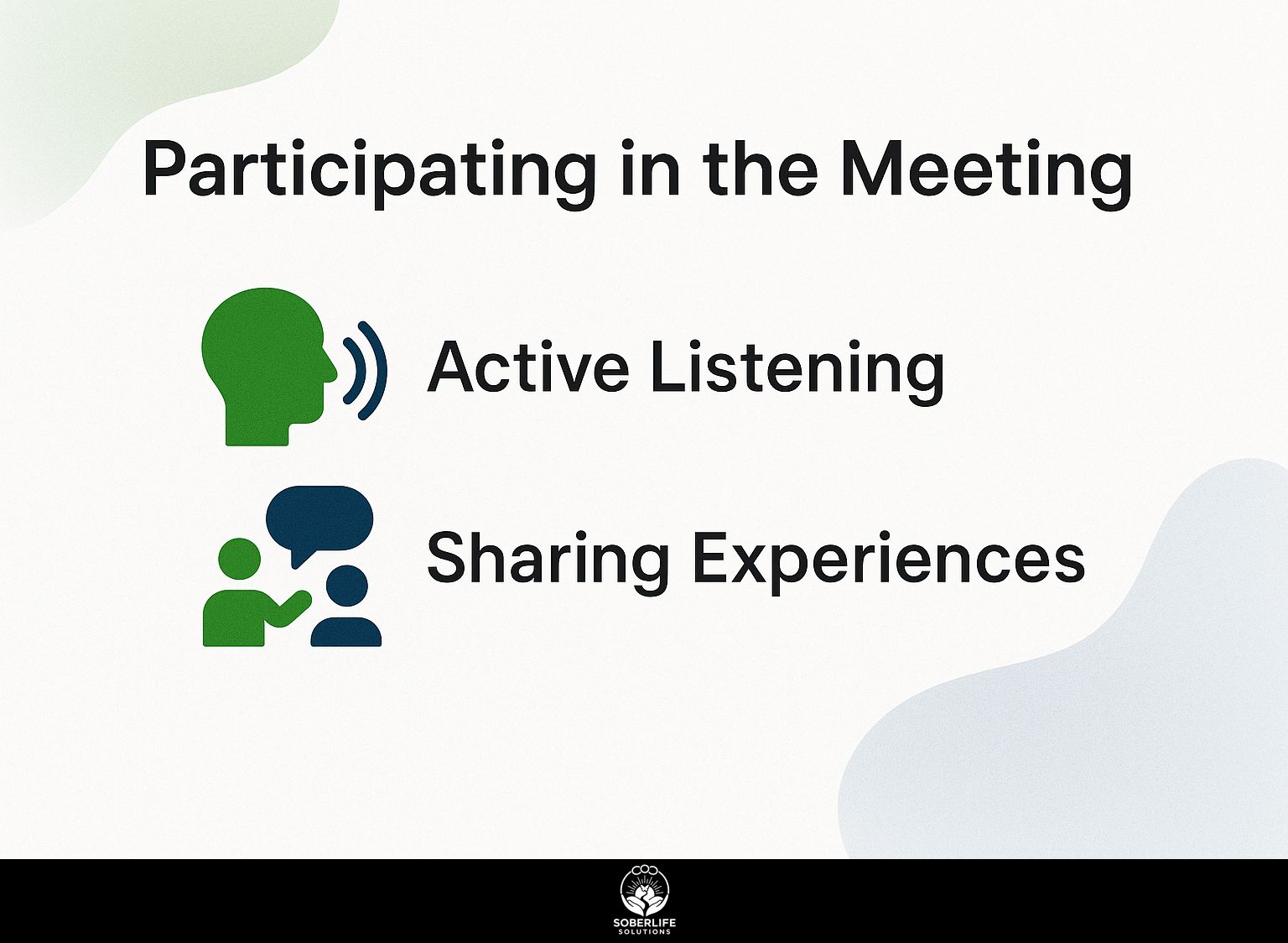
Attending A.A. meetings can help with personal recovery and improve family relationships by talking about personal experiences.
Active Listening
Listening carefully is an important skill in A.A. meetings, allowing people to participate fully and offer real support.
To practice active listening effectively, focus on two key techniques.
- First, repeat what you’ve heard by summarizing the speaker’s words, such as saying, ‘It sounds like you felt overwhelmed when…’ This shows you understand and encourages more sharing.
- Second, reduce interruptions by putting your phone away and looking directly at the person, creating a closer conversation.
Concentrating on these parts helps people heal personally and strengthens the group’s ability to provide support, creating a safe environment for open conversations.
Sharing Experiences
Talking about personal experiences during A.A. meetings can be uplifting and give helpful information for both members and their families.
To share effectively, focus on three key aspects: authenticity, emotions, and respect.
Begin by sharing your feelings related to your experiences; this encourages connection. Use ‘I’ statements, like “I felt overwhelmed when…” to create a personal narrative. Be respectful of others’ privacy by not sharing details that could identify them.
Pay close attention when others speak to create a helpful atmosphere. By focusing on these parts, you can make your contributions more meaningful and influential.
Post-Meeting Reflection
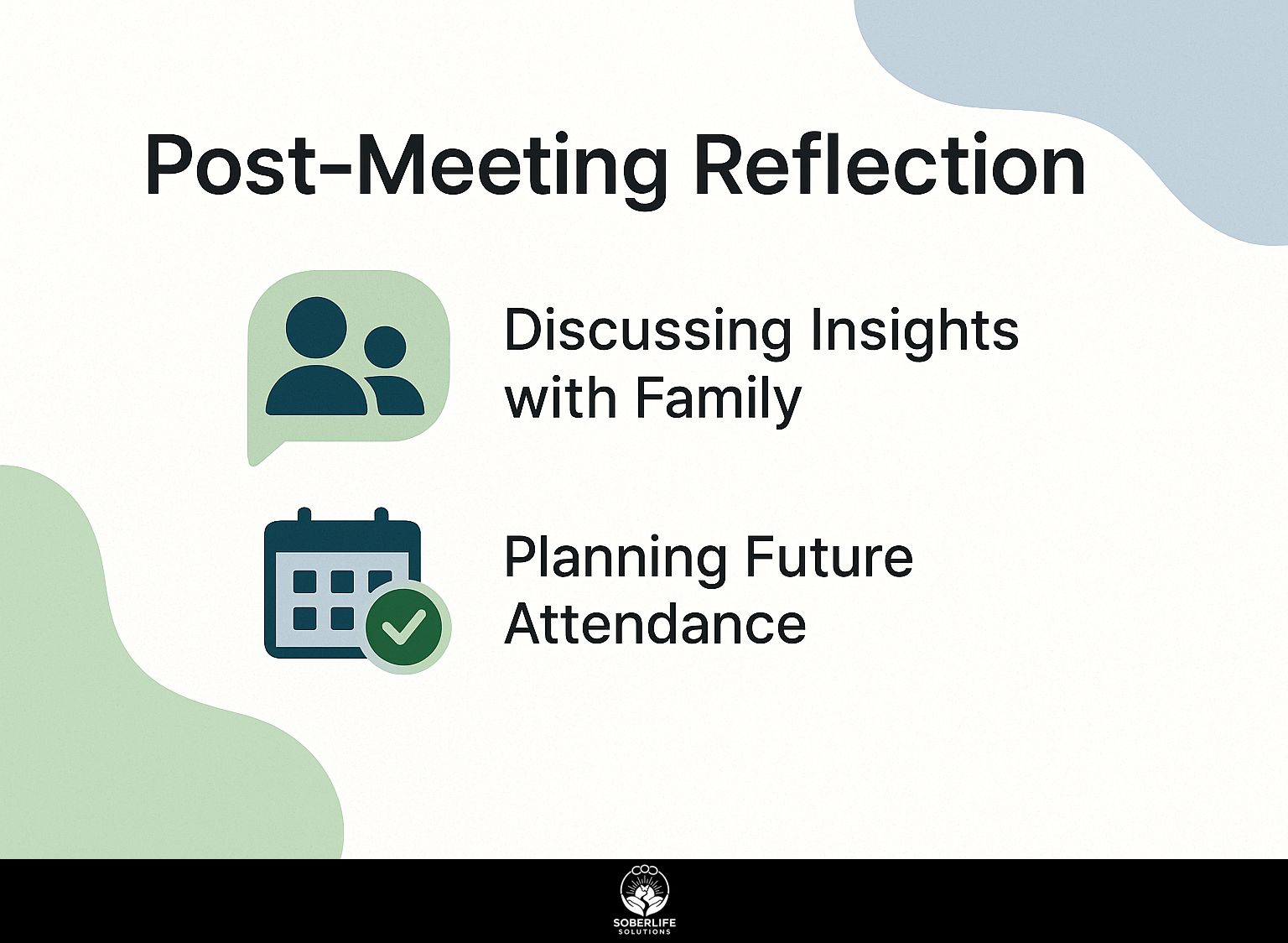
Thinking about the meeting afterward is important for keeping what was learned and encouraging family discussions.
Discussing Insights with Family
Talking about what you’ve learned from A.A. meetings can help family members get closer and understand each other better.
To help start these discussions, ask questions such asHow did you feel during the meeting?” or “What information did you find most meaningful?”
Encourage sharing personal experiences related to sobriety and coping techniques.
Family journals can be very useful. Everyone can share their thoughts and emotions weekly, promoting open discussion. Scheduling regular family meetings centered on these ideas can encourage continued support.
This method helps people talk openly and builds a safe environment for sharing and personal development.
Planning Future Attendance
Attending A.A. meetings together as a family can build a regular, encouraging habit that helps with recovery.
To simplify this process, begin by discussing with everyone to set a time that suits everyone.
Use Google Calendar to schedule alerts and organize meetings to keep everyone informed.
To evaluate formats, consider rotating between in-person meetings and virtual options to accommodate family members’ preferences.
Creating a shared document can help track meeting details, reflections, and any commitments made during the sessions. This approach encourages accountability and makes everyone feel valued, which enhances family communication.
Frequently Asked Questions
1. How do I find A.A. meetings to attend with my family members?
You can find A.A. meetings by searching online, asking your healthcare provider, or contacting local A.A. groups for meeting schedules.
2. Can I bring my family members to any A.A. meeting?
Yes, most A.A. meetings are open to anyone interested in the program, including family members and friends. It’s a good practice to ask the meeting organizer ahead of time.
3. What should I expect at an A.A. meeting with my family members?
At an A.A. meeting, you can expect to hear members share their personal stories of recovery, as well as offer support and guidance to those in attendance. You may also have the opportunity to share your own experiences and ask questions.
4. Is it okay for my family members to share their own stories at the meeting?
Yes, it is encouraged for family members to share their experiences, thoughts, and feelings at A.A. meetings. This can help them learn more about the program and get help from others in the same situation.
5. Can my family members attend A.A. meetings if they are not struggling with alcoholism?
Yes, anyone can attend A.A. meetings, regardless of whether they have struggled with alcoholism or not. Family members can attend to learn more about the program and support their loved ones.
6. Are there any A.A. meetings specifically for family members?
Yes, there are A.A. meetings specifically for family members, such as Al-Anon and Alateen. These meetings focus on the impact of alcoholism on family members and provide support and guidance on how to cope with the effects of the disease.

